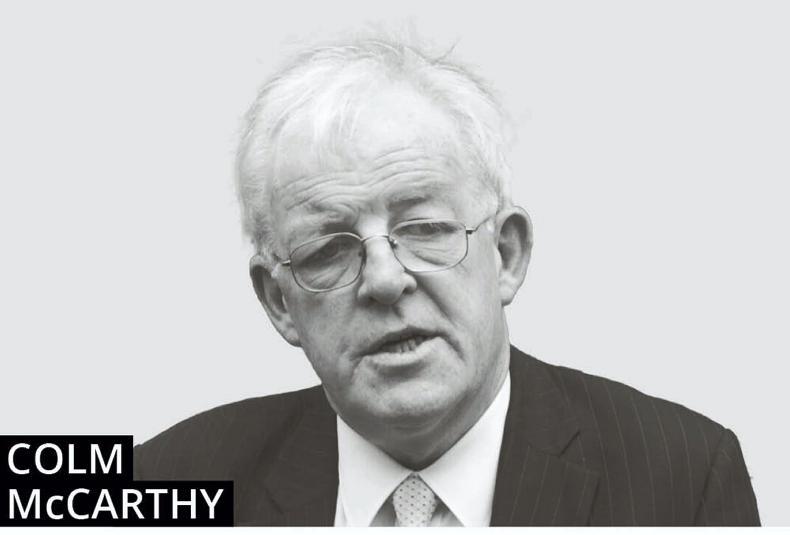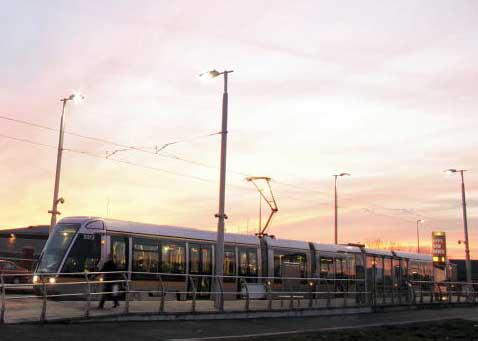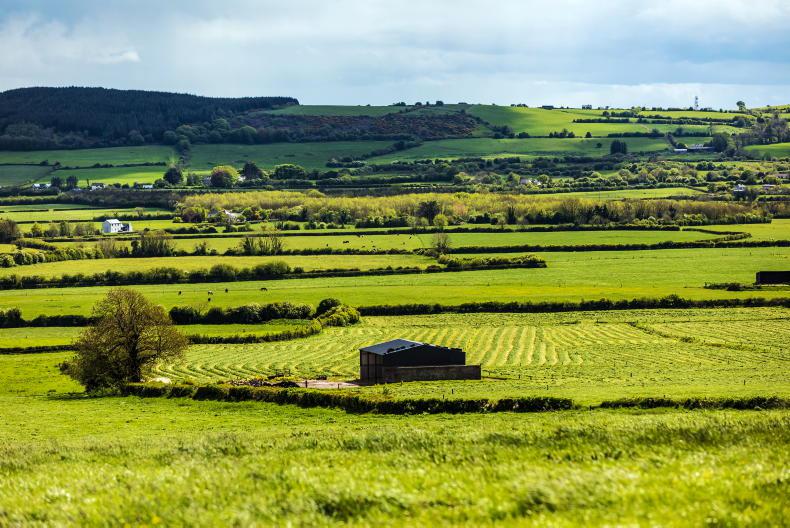This is the third election in a row when the voters decided to chastise the incumbent Government. In 2011, the outgoing Fianna Fáil party lost all but 20 of the 78 seats they had secured at the 2007 contest and their partners in office, the Greens, lost all six of their 2007 seats. The electorate’s favourites in 2011 were the Fine Gael party with 76 seats, a gain of 25 and Labour which secured 37, a gain of 17. They formed a coalition which enjoyed the largest majority ever.
The 2011 outcome was a severe, if understandable, punishment for the incumbents at a time when the country was in an IMF financial rescue programme for the first time in its history.
The outgoing Fianna Fáil and Green parties were held responsible for the mismanagement of public spending, the failure to supervise the out-of-control banking system and the resultant property crash, severe downturn and soaring unemployment.
They went on to exit the troika bail-out programme and the worst of the downturn was over when the next election came around in 2016
The Fine Gael and Labour parties which had not held office since 1997, 14 years earlier, were deemed blameless for the revealed sins of the Bertie Ahern era and, accordingly, had saviour status conferred at the ballot box.
They went on to exit the troika bail-out programme and the worst of the downturn was over when the next election came around in 2016. Unemployment was falling steadily, the worst was over, but the voters administered another punishment beating. Fine Gael lost one seat, but Labour lost 30, reduced to just seven.
Neither Fianna Fáil nor Labour have been forgiven and the big winners were Sinn Féin
In last Saturday’s poll Fine Gael, having led a minority government with support from independent deputies, lost heavily and there have been casualties among the party’s independent supporters too. Neither Fianna Fáil nor Labour have been forgiven and the big winners were Sinn Féin.
Outcome
Whatever the outcome of the efforts to form a new government, there is a pattern here which needs to be explained. The 2011 wipe-out for Fianna Fáil and the Greens is not too hard to understand – they had been held responsible for the worst meltdown since the early years of World War II and can have had few complaints. The 2016 outcome, which produced a hung Dáil, is harder to explain.
Last Saturday, the minority Government led by Fine Gael’s Leo Varadkar got no thanks for completing the economic recovery
Enda Kenny and his colleagues inherited a monumental mess, made the usual quota of mistakes but had presided over a better recovery than seemed likely five years earlier. They got hammered anyway, especially the Labour party, as the electorate turned to independent candidates. Last Saturday, the minority Government led by Fine Gael’s Leo Varadkar got no thanks for completing the economic recovery, with unemployment back down to pre-crisis levels, a better balance restored in the public finances and the initial phase of Brexit navigated without damage to the Good Friday Agreement.
Sinn Féin had enjoyed the advantage of outright opposition since 2016 and could campaign, untainted by a record in office, as the party of change. They inherited this position, occupied by Labour in 2011 and by independents in 2016, aided by Fianna Fáil’s support from outside for the minority Fine Gael government.
Sinn Féin will be alert to the fate of those who sacrifice ownership of this valuable political currency for participation in Government
The best position to have held coming into the last three elections has been management of the Complaints Department and first dibs on the “change” label. Sinn Féin will be alert to the fate of those who sacrifice ownership of this valuable political currency for participation in Government. The experience of Labour is salutary, down to a single taxi-full of deputies from the 37 seats won just nine years ago, the number secured by the “change” party, Sinn Féin, on this occasion.
The Sinn Féin manifesto will constrain the party’s room for manoeuvre in whatever talks take place on Government formation. Manifestos nowadays are accorded scriptural status and parties would be well advised to cut down on the hostages to fortune. The manifestos of all parties went too far in specific and unconditional promises about extra spending and tax giveaways but the Sinn Féin document went furthest. To this observer, it looks like it was authored by people who did not envisage participation in the next Government.
The extra spend, between current and capital, is well ahead of the €11bn projection employed by the other parties, a figure unwisely furnished by the Department of Finance but contingent on continued economic growth, better expenditure control than has recently been in evidence, and no hiccups.
There will also be conflict with the European Union, whose commitment to carbon taxation is likely to intensify
There are specific Sinn Féin commitments which will prove troublesome in negotiations for participation in Government – flat-out opposition to the carbon tax will not appeal to the Green Party, the other big winners last Saturday. There will also be conflict with the European Union, whose commitment to carbon taxation is likely to intensify.
The giveaway tone of the manifestos and the carefree attitude to public finances, helped propel the country to disaster twice over the last three decades.
Read more
Farming vote may well have mirrored national mood
UK confirms border checks
This is the third election in a row when the voters decided to chastise the incumbent Government. In 2011, the outgoing Fianna Fáil party lost all but 20 of the 78 seats they had secured at the 2007 contest and their partners in office, the Greens, lost all six of their 2007 seats. The electorate’s favourites in 2011 were the Fine Gael party with 76 seats, a gain of 25 and Labour which secured 37, a gain of 17. They formed a coalition which enjoyed the largest majority ever.
The 2011 outcome was a severe, if understandable, punishment for the incumbents at a time when the country was in an IMF financial rescue programme for the first time in its history.
The outgoing Fianna Fáil and Green parties were held responsible for the mismanagement of public spending, the failure to supervise the out-of-control banking system and the resultant property crash, severe downturn and soaring unemployment.
They went on to exit the troika bail-out programme and the worst of the downturn was over when the next election came around in 2016
The Fine Gael and Labour parties which had not held office since 1997, 14 years earlier, were deemed blameless for the revealed sins of the Bertie Ahern era and, accordingly, had saviour status conferred at the ballot box.
They went on to exit the troika bail-out programme and the worst of the downturn was over when the next election came around in 2016. Unemployment was falling steadily, the worst was over, but the voters administered another punishment beating. Fine Gael lost one seat, but Labour lost 30, reduced to just seven.
Neither Fianna Fáil nor Labour have been forgiven and the big winners were Sinn Féin
In last Saturday’s poll Fine Gael, having led a minority government with support from independent deputies, lost heavily and there have been casualties among the party’s independent supporters too. Neither Fianna Fáil nor Labour have been forgiven and the big winners were Sinn Féin.
Outcome
Whatever the outcome of the efforts to form a new government, there is a pattern here which needs to be explained. The 2011 wipe-out for Fianna Fáil and the Greens is not too hard to understand – they had been held responsible for the worst meltdown since the early years of World War II and can have had few complaints. The 2016 outcome, which produced a hung Dáil, is harder to explain.
Last Saturday, the minority Government led by Fine Gael’s Leo Varadkar got no thanks for completing the economic recovery
Enda Kenny and his colleagues inherited a monumental mess, made the usual quota of mistakes but had presided over a better recovery than seemed likely five years earlier. They got hammered anyway, especially the Labour party, as the electorate turned to independent candidates. Last Saturday, the minority Government led by Fine Gael’s Leo Varadkar got no thanks for completing the economic recovery, with unemployment back down to pre-crisis levels, a better balance restored in the public finances and the initial phase of Brexit navigated without damage to the Good Friday Agreement.
Sinn Féin had enjoyed the advantage of outright opposition since 2016 and could campaign, untainted by a record in office, as the party of change. They inherited this position, occupied by Labour in 2011 and by independents in 2016, aided by Fianna Fáil’s support from outside for the minority Fine Gael government.
Sinn Féin will be alert to the fate of those who sacrifice ownership of this valuable political currency for participation in Government
The best position to have held coming into the last three elections has been management of the Complaints Department and first dibs on the “change” label. Sinn Féin will be alert to the fate of those who sacrifice ownership of this valuable political currency for participation in Government. The experience of Labour is salutary, down to a single taxi-full of deputies from the 37 seats won just nine years ago, the number secured by the “change” party, Sinn Féin, on this occasion.
The Sinn Féin manifesto will constrain the party’s room for manoeuvre in whatever talks take place on Government formation. Manifestos nowadays are accorded scriptural status and parties would be well advised to cut down on the hostages to fortune. The manifestos of all parties went too far in specific and unconditional promises about extra spending and tax giveaways but the Sinn Féin document went furthest. To this observer, it looks like it was authored by people who did not envisage participation in the next Government.
The extra spend, between current and capital, is well ahead of the €11bn projection employed by the other parties, a figure unwisely furnished by the Department of Finance but contingent on continued economic growth, better expenditure control than has recently been in evidence, and no hiccups.
There will also be conflict with the European Union, whose commitment to carbon taxation is likely to intensify
There are specific Sinn Féin commitments which will prove troublesome in negotiations for participation in Government – flat-out opposition to the carbon tax will not appeal to the Green Party, the other big winners last Saturday. There will also be conflict with the European Union, whose commitment to carbon taxation is likely to intensify.
The giveaway tone of the manifestos and the carefree attitude to public finances, helped propel the country to disaster twice over the last three decades.
Read more
Farming vote may well have mirrored national mood
UK confirms border checks









SHARING OPTIONS